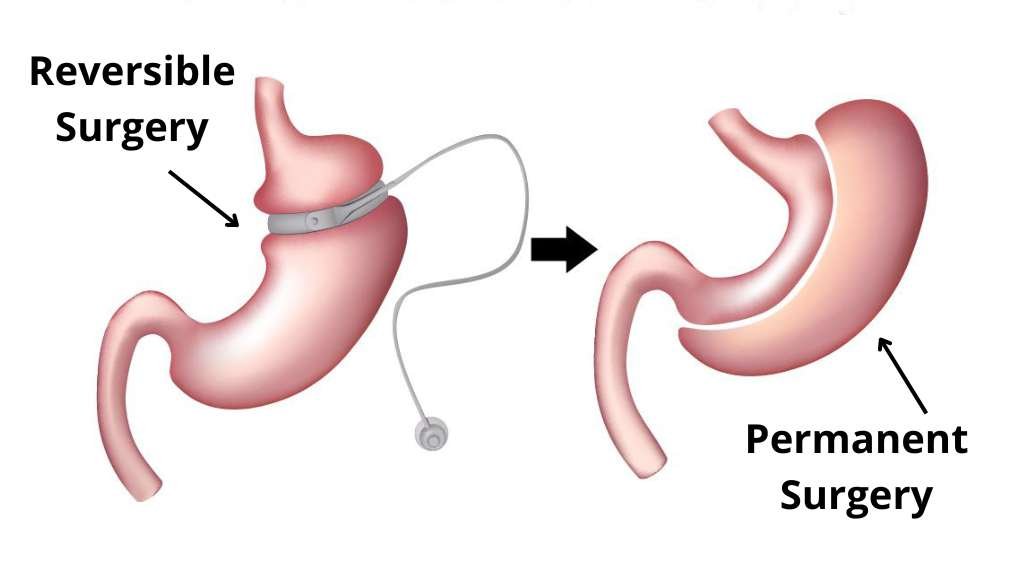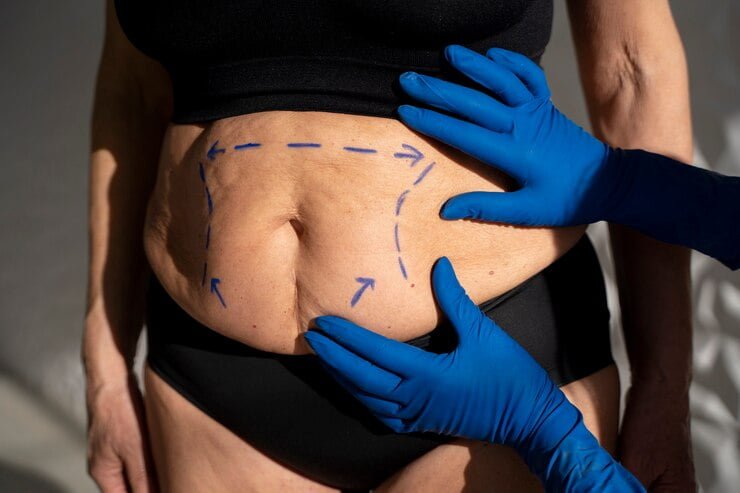What Is The Safest Weight Loss Surgery?
Weight loss surgery, also referred to as bariatric surgery, is a life-changing treatment that can help people obtain major and long-term weight loss. When it comes to bariatric surgery, safety comes first. With so many different types of weight reduction operations available, it’s critical to learn which ones are considered the safest and most successful. In this blog post, we will look at the safest weight loss surgery choices and answer some frequent concerns about them.
Types of Weight Loss Surgery
Before we go into the safety of weight reduction surgery choices, let’s take a quick look at the many surgeries available:
Gastric Sleeve Surgery (Sleeve Gastrectomy)
This technique involves removing a big section of the stomach to form a smaller, sleeve-shaped pouch. Gastric sleeve surgery limits the quantity of food a person may consume, which leads to lower calorie intake and weight loss.
Gastric Bypass Surgery
Gastric bypass surgery involves creating a tiny stomach pouch and rerouting the intestines to bypass a section of the stomach and small intestine. This limits the quantity of food a person may consume and the absorption of calories and nutrients.
Gastric Banding (Lap Band)
This treatment includes wrapping an adjustable band around the top region of the stomach to form a smaller stomach pouch. The band may be changable to control the flow of meals and help in weight loss.
Gastric Balloon Placement
Doctors insert a flat balloon into the stomach and fill it with saline solution to reduce the available space. Gastric balloon insertion is often used temporarily for individuals with a higher weight or those in a higher-weight body.
Weight Loss Surgery Safety
Many consider gastric sleeve and bypass surgery the safest and most effective treatments for long-term weight loss. Extensive research supports their safety and success in helping patients achieve their weight loss goals
Gastric Sleeve Surgery
Doctors consider gastric sleeve surgery safe and beneficial for individuals with a BMI of 35 or higher who experience obesity-related health issues such as type 2 diabetes, high blood pressure, or sleep apnea. It is a very easy treatment that has a lower risk of complications than gastric bypass surgery.
Gastric Bypass Surgery
Gastric bypass surgery is safe and effective for individuals with a BMI of 35 or higher and obesity-related health conditions. Although slightly more complex than gastric sleeve surgery, it has been shown to deliver greater weight loss and improved health outcomes for some patients.
Common Concerns Regarding Weight Loss Surgery
Despite the safety and success of losing weight surgical alternatives, the following common concerns and issues may arise:
Complications
All weight-loss surgical procedures involve the risk of bleeding, infection, blood clots, leaks, and digestive difficulties. However, major problems are uncommon, particularly when the operation is performed by qualified surgeons in approved institutions.
Nutritional Deficits
Weight loss surgery may restrict nutritional absorption and cause deficiencies in specific vitamins and minerals. To avoid deficiencies, patients have to commit to a strict food routine and take nutritional supplements recommended by their healthcare experts.
Lifestyle Improvements
Weight loss surgery requires a lifetime commitment to dietary and lifestyle adjustments in order to maintain weight loss and avoid weight regain. Therefore, patients must be willing to make major changes to their food habits, exercise routines, and general lifestyle in order to achieve long-term success.
When thinking about weight-loss surgery alternatives, safety is important. Gastric sleeve and gastric bypass surgery are widely recognized as the safest and most successful methods for achieving significant, long-term weight loss. It’s important to consult with a skilled healthcare expert. They can help you make an informed decision tailored to your specific needs.
At Cayra Clinic , we are dedicated to delivering excellent treatment and assistance for people considering losing weight surgery. Contact us today to set up a consultation and discover more about how you can accomplish long-term weight reduction success with confidence.
FAQs
1. What are the safest types of weight loss surgery available?
Gastric sleeve and gastric bypass surgeries are often considered the safest and most effective options for significant and long-term weight loss.
2. How do I know if weight loss surgery is right for me?
Weight loss surgery may be suitable if you have a BMI of 35 or higher and are struggling with obesity-related health conditions. Consulting with a healthcare provider can help determine if you are a candidate.
3. What are the benefits of gastric sleeve surgery?
Gastric sleeve surgery involves removing a portion of the stomach to create a smaller, sleeve-shaped stomach. Benefits include significant weight loss and improvement in obesity-related health issues like type 2 diabetes and hypertension.
4. What is gastric bypass surgery, and how does it work?
Gastric bypass surgery creates a small stomach pouch and reroutes the intestines to bypass a portion of the stomach and small intestine. This procedure limits the amount of food you can eat and reduces calorie absorption, leading to weight loss.
5. What are the risks associated with weight loss surgery?
Risks can include infection, bleeding, blood clots, and nutritional deficiencies. However, serious complications are rare when the surgery is performed by experienced surgeons in accredited facilities.
6. How long does it take to recover from weight loss surgery?
Recovery times vary, but most patients can return to normal activities within a few weeks to a month after surgery. Full recovery and adjustment to new eating habits may take several months.
7. Will I need to make dietary and lifestyle changes after weight loss surgery?
Yes, weight loss surgery requires lifelong commitment to dietary changes, regular exercise, and lifestyle adjustments to maintain weight loss and overall health.
8. Is weight loss surgery covered by insurance?
Coverage varies by insurance provider and policy. Some plans may cover weight loss surgery if it is deemed medically necessary and meets specific criteria.
9. What should I expect during the consultation and evaluation process?
During the consultation, your healthcare provider will evaluate your medical history, perform physical exams, and discuss the benefits, risks, and expectations of weight loss surgery.
10. Where can I find more information about weight loss surgery options?
For more detailed information and to discuss your specific needs, schedule a consultation with a qualified bariatric surgeon or visit reputable healthcare websites.













